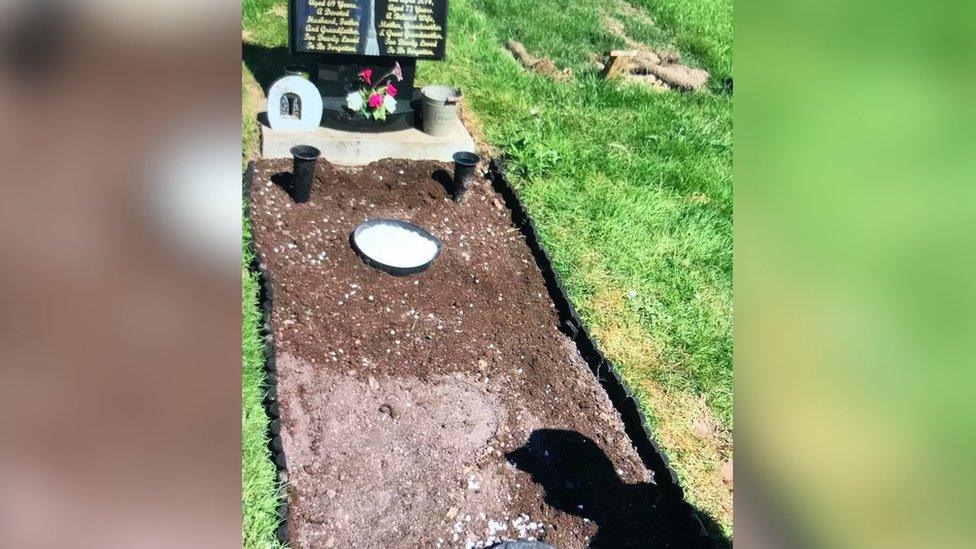Mum upset as council removes solar lights from daughter's grave
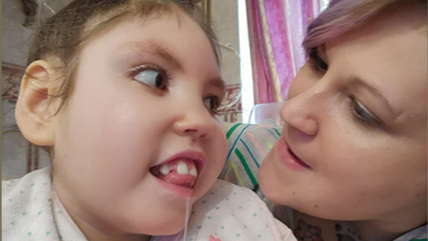
Loriah Thomas, who had cerebral palsy, died of chest infection four years ago
- Published
A mother has spoken of her upset after solar lights, which helped comfort her, were removed from her daughter's grave.
Tegan Thomas' 14-year-old daughter Loriah had cerebral palsy and died of a chest infection four years ago.
Ms Thomas, 36, from Blaenavon, Torfaen visits her daughter's grave at Blaenavon Cemetery every day and noticed that solar lights and windmills have been removed twice.
Torfaen Council said that "certain items can cause safety and environmental issues" but it will review the process of removing items from graves and the way it communicates with families.
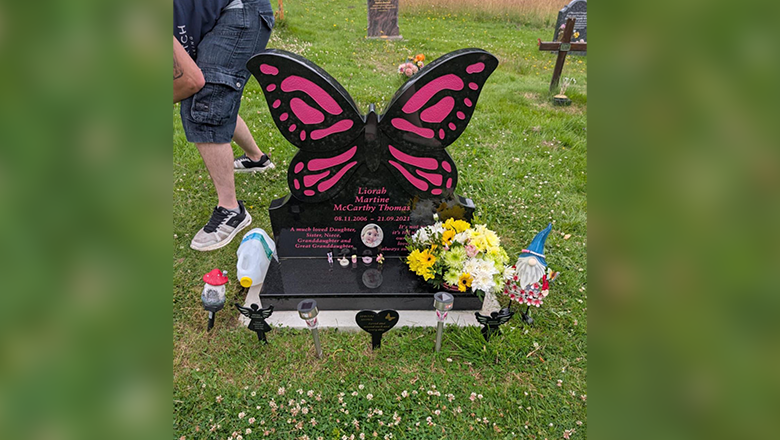
Tegan said she was upset to find some of the items removed from her daughter's grave
Ms Thomas had placed items, such as solar lights, windmills and ornaments, on her daughter's grave.
"The grieving process is different for everyone. I just think that parents placing items on their children's resting places comforts them.
"For me, the solar lights means she's not in the dark," she said.
Last year, Ms Thomas noticed that the items, including the solar lights, had been removed from her daughter's grave.
She replaced the solar lights but then noticed that the lights were removed again last month.
"It was very upsetting," she said.
Ms Thomas said she understands items that are made of glass or others that could be potentially dangerous are removed for safety.
"But I don't understand the issue on why windfills and solar lights are removed.
"We've been told that it upsets the tranquilty of the cemetery," she said.
Ms Thomas said she contacted the council but hasn't received a response.
She added that she thinks the council should be more respectful of the families grieving process.
"Everyone grieves differently but I think the council need to be more considerate of everyone's ways of dealing with it," she said.
Rebecca Davies, Torfaen Council's cemetery manager, said the council understands that bereaved families choose to remember the loss of a loved on in personal ways.
"However, certain items can cause safety and environmental issues and may affect the tranquillity of a cemetery," she said.
She added that bereaved families are given information about what items can be placed on graves when burials are arranged.
If staff identify items that are not permitted, the council contacts the family to request the removal.
"If items are not removed, our staff will place them in safe storage for one month, allowing relatives time to collect them. This practice is consistent with many other local authorities", she said.
The local authority added that it would be reviewing the way information is communicated to families and the process for removing items from graves.
- Published4 April 2024
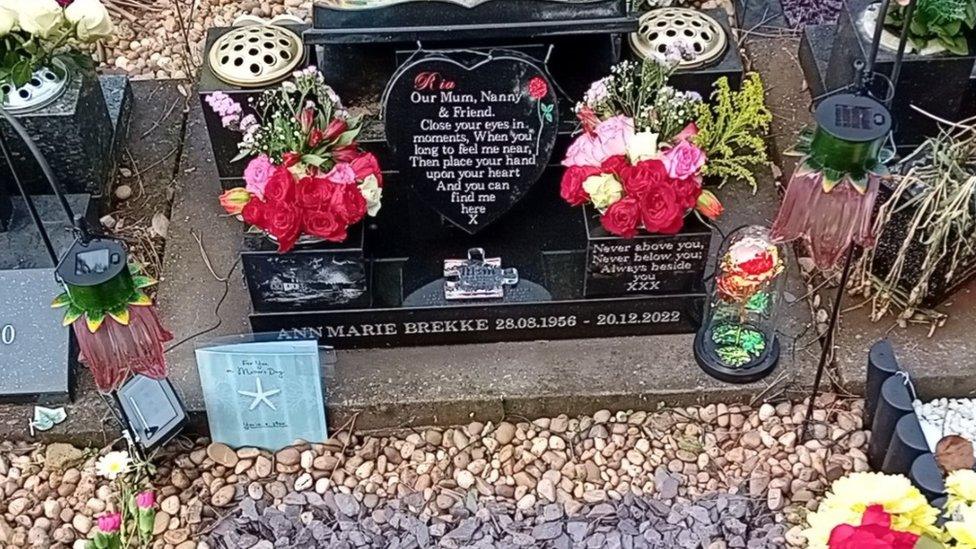
- Published2 September
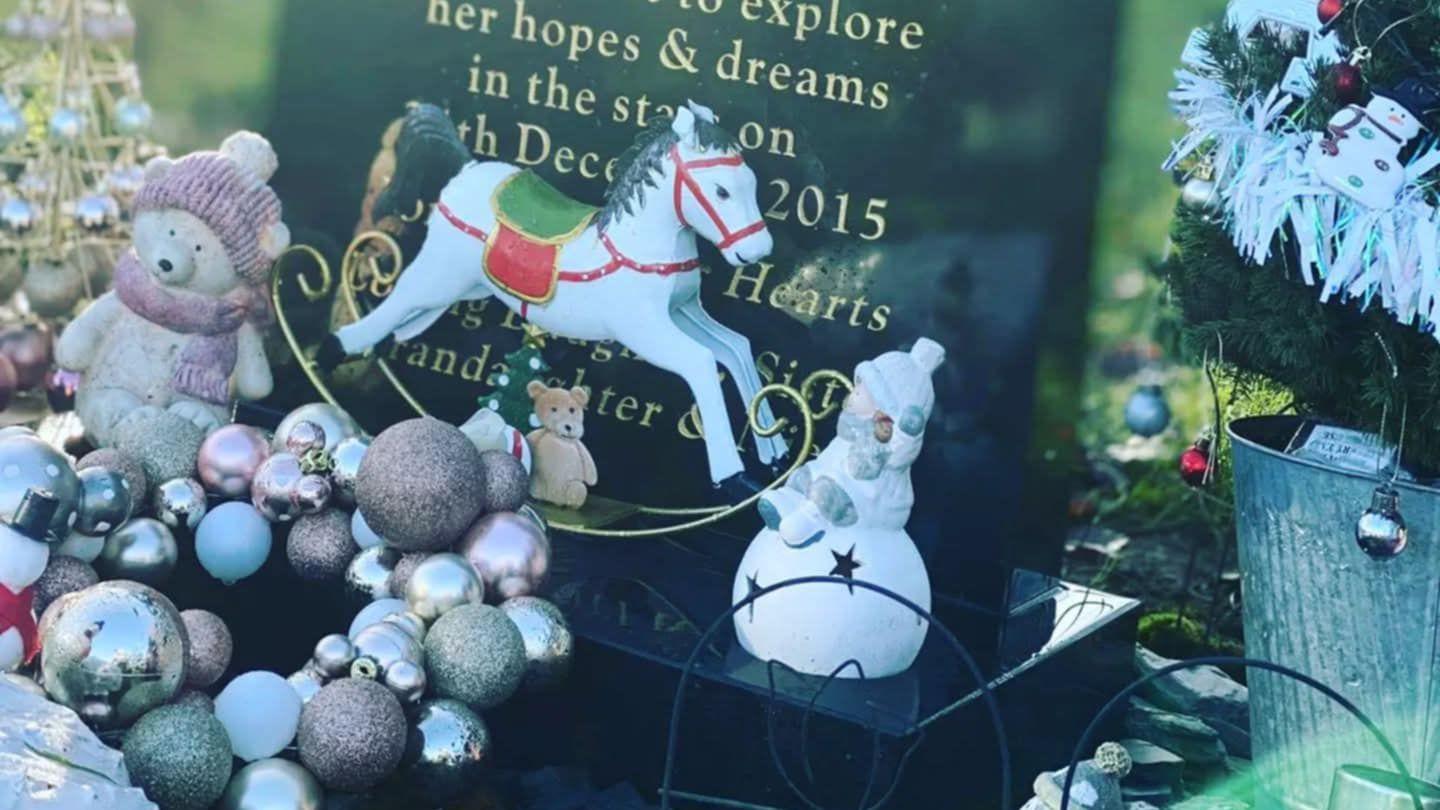
- Published20 July 2020
